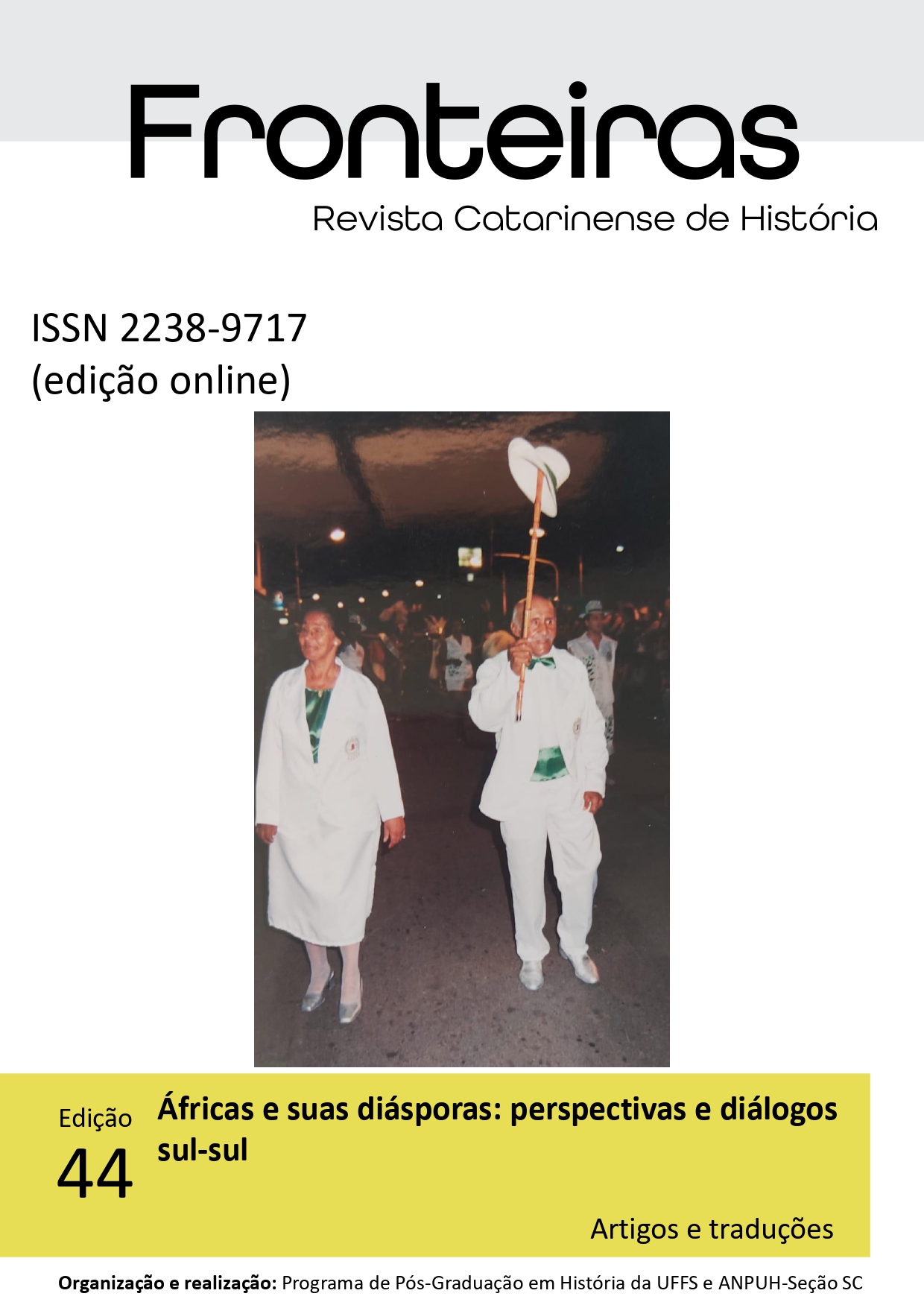Margarida Maria de Jesus
black protagonism and journey in southern Brazil
DOI:
https://doi.org/10.36661/2238-9717.2024n44.14358Keywords:
Intersectionality, Black women, Black familyAbstract
The text addresses the trajectory of the freed brown Margarida Maria de Jesus, through the social relationships she developed from the struggles for legal freedom, and the strategies undertaken to achieve and maintain it. Using ecclesiastical, notarial and judicial records produced in the cities of Lages-SC and Vacaria-RS in the final decades of the 19th and early 20th centuries, we located their sociability networks in a society marked by the social exclusion of black women. The objective is to demonstrate Margarida's leading role in achieving her freedom through an Action for Freedom in 1884 in the city of Lages/SC and follow her journey towards freedom. The question that guided us is: which reception and support networks helped in her protagonism? Her trajectory and relationships are based on the intersectional perspective (gender, race and class) proposed by black feminist literature.



















